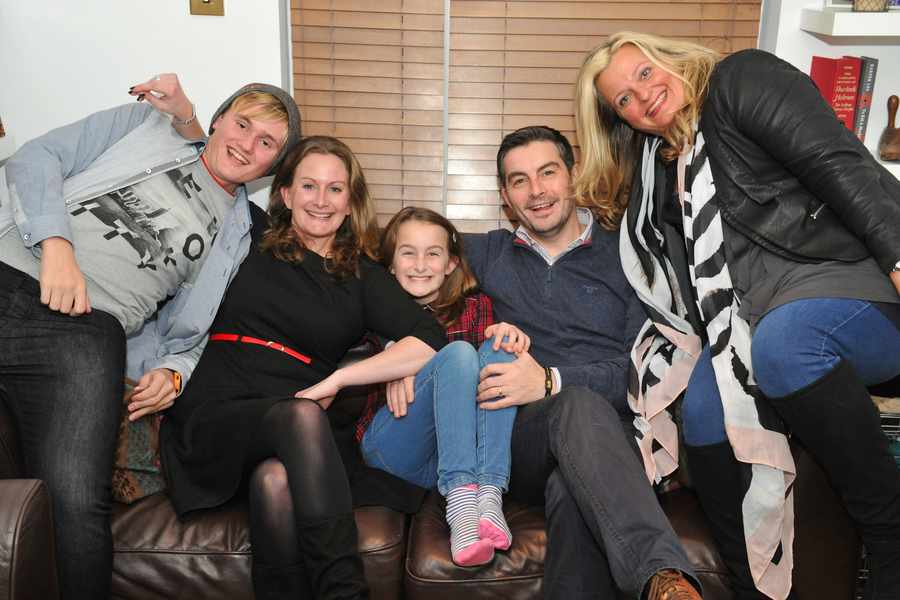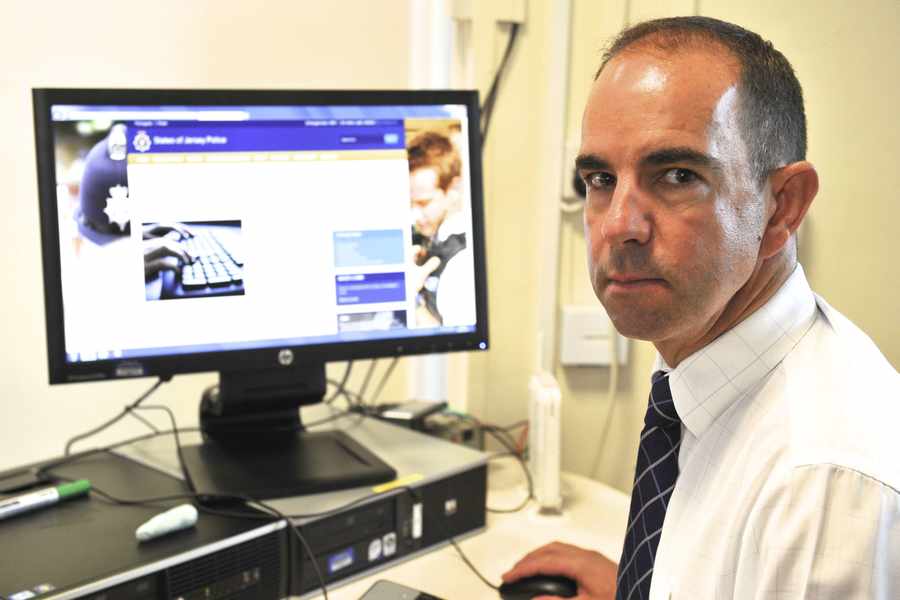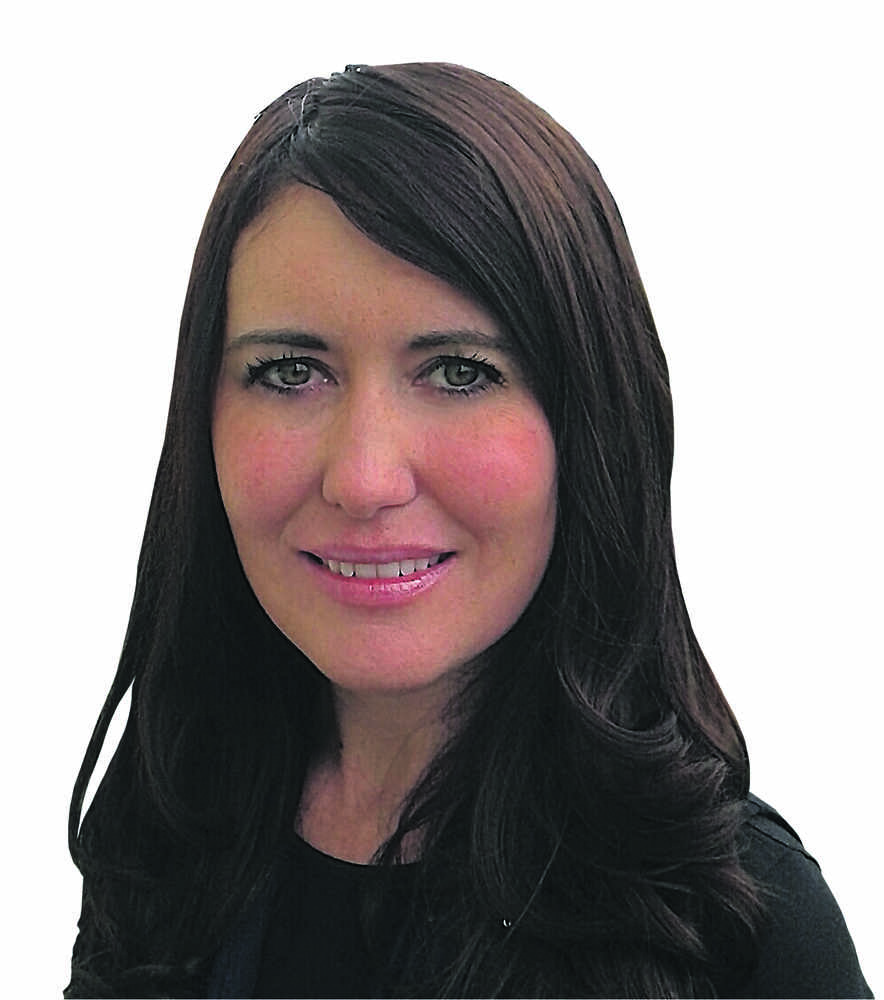All this while still trying to find the time to sort out our own challenges and demands.
Do you want to learn how to manage stress, deal with difficult situations, avoid power struggles and boost confidence in yourself and your kids? Two mums who experienced hardship when their children were young have set up a new community course aimed at parents.

JEP Parenting has teamed up with The Resilience Development Company and Lloyds Bank Jersey to offer 150 parents a chance to take part in this parenting workshop worth £595.
To win one of these 150 free spaces on the new workshop for parents in Jersey, all you have to do is log onto JEP Parenting Page on Facebook, like the 150 parent workshop competition post and email emma@resdev.je to book your place on a workshop.
The first 150 parents who get in touch will be offered a free space on one of the courses at Jersey Museum starting in October.
There are plenty of course times and dates to suit everyone.
Emma Ogilvie (36) and Louise Scambler (45) are parents of school-age children and teenagers and have backgrounds in psychology, counselling and training. Together with David Ogilvie, they are co-founders of Jersey-based company The Resilience Development Company and are experts in helping individuals, teams and organisations to change the way they think, act and engage with change.
The company has launched a new project called the 150-Parent Challenge, offering a free parenting workshop to 150 parents starting next month.
Lloyds Bank Jersey has agreed to fund 150 free spaces for parents in the Island and the courses are now set to run at the Jersey Museum on weekdays, evenings and weekends.
They teach a total of 22 skills that are simple and easy to use. These will be spread over three four-hour sessions so that parents get the chance to go away and use the skills in between the sessions. This type of programme is usually charged at £595 per person.
Mrs Ogilive, mother to Benjamin (14) and Lilly (10), said: ‘As a parent, I know how sometimes parenting can be strangely isolating. It’s hard work. There’s no handbook and it’s amazing the amount of parents that genuinely don’t feel up to the mark.
‘We get a real mix of people on our courses and parents tell us that they quickly feel welcome. We are not hear to preach –we keep it real and give parents an effective toolbox of skills they can start to use straight away.’
‘We all want the best for our children. I believe that what we are not so good at is dealing with all the stuff that gets in the way of being a parent. It’s about being the best you can be and in turn passing these skills on to our children.’
She said that this three-session parenting course has been developed by parents for parents with proven and practical tools that really work.
Louise said: ‘Developing strong relationships is the bread and butter of what we do. Our courses focus on practical and relevant skills that can be taken away and used immediately. They are designed to really get you thinking about your thinking, your behaviour, your language and how you interact with yourself and others around you.
‘People who come on our courses tell us they are a lot less stressed, more confident, happier, feel much more fulfilled and are able to communicate a lot better with their children, family members and partners.’
Susana, Caroline and Lizzy are parents who have recently been on the course. Susana said: ‘Had I been taught these skills earlier on in life, it would have saved me a lot of grief and stress. Having worked with small children and teenagers, I can really say that they could do with these skills.’
Caroline said: ‘I’m nearing 50 now and I thought I knew it all. I have three children and the course made me have that inner confidence to deal with any situation, not just as a parent, but in life generally. It’s not just about being a parent, it’s about how you interact with people, and I’ve now got the ability to foresee a situation before it happens and deal with it.’
Lizzy said: ‘I would tell anyone to do this course because I got so much out of it.’
Emma has a background in psychology and counselling with a particular interest in the science behind developing strong relationships. Louise has 26 years of experience as a trainer across multiple industries, including the film industry, and has worked on the Harry Potter films.

They said that their course would show parents how to get the best out of themselves, their children and family life.
Mrs Ogilvie added: ‘We’ll show you how to banish pressure and manage stress in yourself and others, and how to understand and manage your emotions when all your buttons are being pushed. The course is ideal for parents with children of any age.’
The course will also show parents how to create a deeper emotional connection with their children so they can be a parent without the daily power struggles, as well as learning simple ways to make sure their language isn’t threatening.
Everyone is welcome but the course is especially useful for parents, carers and even grandparents – anyone who is interested in developing a better relationship with their children. For more information, contact emma@resdev.je or call 07797 896163.

A NEW guide to help parents decode what their children say on social media is being published on the States of Jersey police website.
This week the UK Department of Education launched an online service which provides tips on navigating teenage life and gives adults the confidence to talk about sensitive topics with their children.
Part of the service includes a dictionary that translates ‘popular teen chat acronyms’, including get naked on cam (GNOC) and age, sex, location (ASL), often used by children using anonymous chat rooms to disclose their personal details.
GNOC: Get naked on camera.
ASL: Age, sex, location.
P999: Parent in room alert.
CD9: Parents around alert.
IWSN: I want sex now.
LMIRL: Let’s meet in real life.
Zerg: To gang up on someone.
POS: Parents over shoulder.
PAW: Parents are watching.
MOOS: Member of opposite sex.
KPC: Keep parents clueless.
WYRN: What’s your real name.
The tool will help parents to spot when their child issues a P999, also known as a parent alert, or a CD9 (Code 9), to make their online friends aware that their parents are around.
Chief Inspector Chris Beechey has stressed the importance of parents knowing what their children are doing online. He has now suggested that the States police include this new guide on their cyber section on their website for parents in Jersey.
‘As highlighted on numerous previous occasions, the importance of parents working with their children and taking an interest in their on-line activities cannot be over-estimated,’ he said.
‘This useful guide is another way in which parents can educate themselves in this regard, whichwill undoubtedly help in this overall approach.’
To ensure that children are safe online, Chief Insp Beechey said that parents should get involved with their child from a young age, set some boundaries and rules and try out the technology that their child is using.
‘Ensure that you know how to use parental controls and that you have access to up-to-date software to help keep children safe on-line,’ he said.
‘Most importantly, however, talk regularly to your child about their and your on-line lives. Show that you understand how important technology is to them, and talk about its benefits. But don’t be nervous about things such as responsible online behaviour, for example bullying. The Parent Zone guide will help. Further information and advice can also be found at www.parentinfo.org.’
NOISY children generate more complaints in pubs than any other issues, a new survey by the Good Pub Guide has found.
A recent review found that badly behaved children caused more headaches for landlords and long-standing customers than drunks and brawlers.
As more pubs and restaurants transform themselves into family-friendly bars by adding playgrounds, children’s menus and nappy-changing facilities, many long-standing customers are not happy. Babies who scream and children who dash about between the tables are the worst offenders, according to the review.
But how does it make parents feel when their child is having a meal-time meltdown and they are told to leave because of their child’s behaviour?
JEP Parenting has spoken to a Jersey family who are upset about being asked to leave a pub-restaurant in the east of the Island recently because their three year old daughter’s crying was ‘upsetting customers’.
Vee Smith-Gauvin (34) and Payton Guerrier (38) had enjoyed a pre-school graduation party in the afternoon with their daughter Lia-Lucille (3) and decided to celebrate with a meal that evening. They arrived at the venue with their daughters, Lia-Lucille and Kallisti (12 months), but Lia, who had fallen asleep on the way there, did not wake up in her usual happy mood.
Vee, a holistic therapist and pilates teacher, said: ‘She had woken from a nap in a bad mood after an exhausting day. We wanted to get an early dinner before heading home. Normally Lia’s mood would pick up, but not this time. She was very emotional and Payton and I had taken her outside on two occasions to calm her down.
‘Payton took Kallisti out of the restaurant and I was calming Lia down inside and the manager shouted that we were upsetting his customers and would have to leave the restaurant. I was mortified, but understood he wanted to keep his customers happy.
‘I gathered our bits together and took Lia outside (which set her off again). I put her in the car to calm down and went back in and paid for the starters and glass of wine I didn’t touch.’
Payton, a company director, added: ‘I had gone outside with Kallisti. Although we had an irate child, I felt the manager handled the situation badly. I was disappointed the food and wine was thrown away with no offer of compensation. It hasn’t upset me as I can handle a screaming child. We just won’t go back there again for food.’
Vee said: ‘Once Lia had calmed down we took her into the restaurant where she apologised to the management for her behaviour.’
- What would you do if you were asked to leave a pub or restaurant because of your childs behaviour? Join the discussion at the JEP’s Parenting Facebook page.[/breakout]

DINNER time in my home often involved the same sight every night – a lonely figure last at the table, staring into a cold plate of food, nibbling on a pea while thinking of ways to get out of eating the dinner.
I would often try to hide my food, spending ages trying to mash the potato into my plate in the hope it would disappear, and often shovelling forks full of food onto my brother’s plate while he wasn’t looking (he still blames me for making him overweight as a child).
My days of fussy eating ended only in my late teens, but they are beginning to bite me back. I am now getting a taste of the heartache I caused for my parents with my own children playing up at dinner time.
Just as I once did, our five-year-old daughter has started to eat with her eyes, and if she doesn’t like what she sees on her plate, she will protest and cause a fuss.
Thankfully, our children are nowhere near as fussy as I was (yet) and will at least try new food, which is something I refused to do.
I was so impressed when our three-year-old son tried his first ever moule, or ‘pinchy mussel’ as he called them, during our recent holiday in France. Three years old and eating mussels! I didn’t even like fish fingers at his age, and I was in my 20s before I was introduced to my first moule . Even then I could hardly swallow it.
Our son was like Oliver Twist, asking for more as he devoured moule after moule of my husband’s meal.
While we were in France, it was refreshing to see so many families eating out together – and there wasn’t a noisy child in sight (apart from ours!).
Apparently French children don’t just eat well, they also develop a positive, adventurous and healthy overall attitude to food at a very early age. So says author Mark Woods, who has launched his new book Planet Parent, which details many of the best parenting techniques from all over the world.
He said that the French introduce a different vegetable to their child every four days as they wean them. The idea is to expose them to as many flavours as possible before the age of two, when it becomes more common for them to be reticent about trying new foods.
‘The French give a broad experience of flavours to babies when they are weaned, and don’t bother about textures so much – they’ll purée everything to within an inch of its life. Deal with textures when kids are older,’ he says.
Now I wonder whether that’s where my parents went wrong with me. I seem to recall hearing of a weaning diet of lumpy mashed potato – a common vegetable in any Irish home and enough to turn any child into a fussy eater.






